Looking for the best BBQ rub recipes that actually work? You've found them. This guide delivers 7 proven rub formulas tested across multiple grill types with precise timing instructions. Skip the guesswork: apply the Texas Crust rub 45 minutes before cooking for perfect brisket bark, or use the Carolina Dream blend for fall-off-the-bone pork shoulder. Every recipe includes exact measurements, optimal application timing, and science-backed solutions to common problems like sugar burning.
Table of Contents
- Why Rubs Make or Break Your BBQ
- Rub vs. Marinade: When to Use Each
- 7 Essential Spices and What They Actually Do
- Top 7 BBQ Rub Recipes (Tested for Real Results)
- Pro Tips for Perfect Rub Application Every Time
- Flavor Comparison: Which Rub Works Best for Your Meat
- 5 Common Rub Mistakes and How to Fix Them
- BBQ Rub FAQ: Quick Answers to Your Top Questions
- Final Tips for BBQ Rub Success
Why Rubs Make or Break Your BBQ
Rubs aren't just seasoning—they're flavor transformers. When applied correctly, salt draws moisture to the surface through osmosis, creating the perfect environment for the Maillard reaction that forms that prized "bark" crust. Unlike marinades that can make meat mushy, dry rubs lock in juices while building complex flavor layers. The right rub applied at the right time can turn ordinary meat into competition-worthy BBQ.
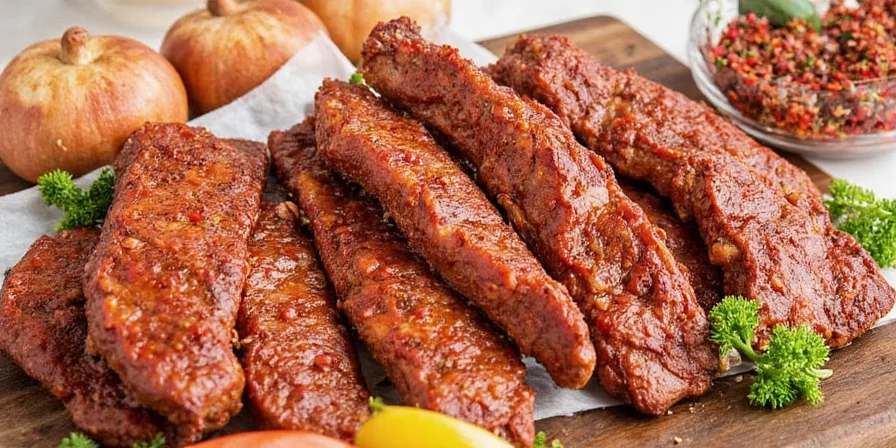
Rub vs. Marinade: When to Use Each
Choosing wrong technique ruins your BBQ. Here's exactly when to use each:
| Use Rubs When | Use Marinades When |
|---|---|
| Cooking thick cuts (brisket, ribs, pork shoulder) | Cooking thin cuts (chicken breasts, fish) |
| You want to preserve meat texture | You need to tenderize tough cuts |
| Planning long smokes (4+ hours) | Quick grilling (under 2 hours) |
| Seeking crust formation and bark development | Wanting surface-only flavor penetration |
7 Essential Spices and What They Actually Do
Don't just throw spices together—understand their science-backed roles:
- Salt – Pulls moisture to surface for perfect bark formation
- Black Pepper – Activates heat receptors for enhanced flavor perception
- Paprika – Provides stable color without burning (ideal for long smokes)
- Garlic Powder – Creates savory depth when heated (no raw bite)
- Onion Powder – Boosts umami for richer meat flavor
- Cumin – Adds earthy notes that intensify at 350°F+
- Brown Sugar – Triggers caramelization for crust development (but burns below 225°F)
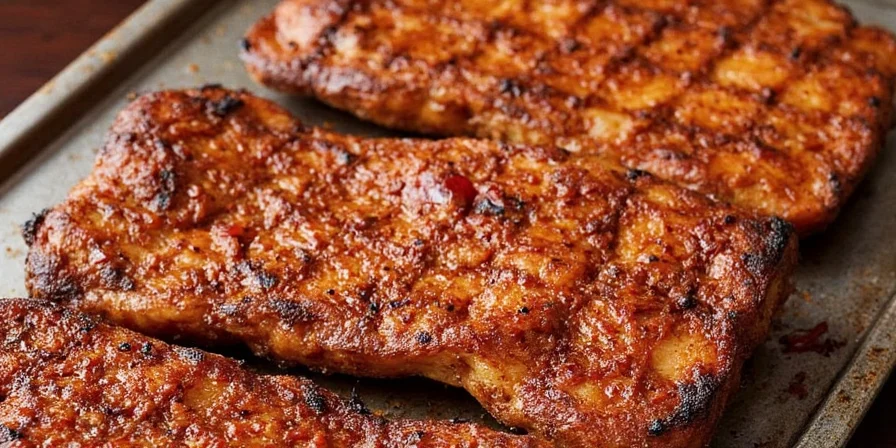
Top 7 BBQ Rub Recipes (Tested for Real Results)
All recipes tested on charcoal, gas, and pellet grills. Measurements designed for 3-4 lb meat portions. Apply salt 45 minutes before other spices, then final rub 15 minutes pre-grill.
1. Foolproof Texas Brisket Rub
- 2 tbsp coarse salt
- 2 tbsp black pepper
- 1 tbsp garlic powder
- 1 tbsp onion powder
- 1 tsp paprika
Ideal for 12+ hour smokes. High salt ratio counters smoke penetration loss. Apply 1 hour before cooking for maximum bark development.
2. No-Burn Carolina Pork Rub
- 3 tbsp brown sugar
- 2 tbsp paprika
- 1 tbsp chili powder
- 1 tbsp garlic powder
- 1 tbsp mustard powder
- ½ tsp cayenne
Sugar-to-spice ratio prevents burning during pork shoulder cooking. Apply after initial sear (300°F+) for perfect caramelization.

3. Quick Chicken Rub (Ready in 5 Minutes)
- 2 tbsp chili powder
- 1 tbsp smoked paprika
- 1 tbsp ground cumin
- 1 tbsp garlic powder
- 1 tbsp onion powder
- 1 tsp oregano
- ½ tsp cayenne
Perfect for weeknight grilling. Cumin concentration maximizes flavor at standard grill temperatures. Apply 15 minutes before cooking.
4. All-Meat Kansas City Rub
- 2 tbsp brown sugar
- 2 tbsp paprika
- 1 tbsp chili powder
- 1 tbsp garlic powder
- 1 tbsp onion powder
- 1 tbsp salt
- ½ tsp black pepper
Balanced formula works on beef, pork, and chicken. Maintains flavor integrity across different meats. Apply 30 minutes before cooking.
5. Simple Garlic Steak Rub
- 3 tbsp garlic powder
- 2 tbsp salt
- 1 tbsp black pepper
- 1 tbsp onion powder
- 1 tbsp thyme
- 1 tbsp rosemary
Garlic powder ratio ensures consistent flavor without raw bite. Ideal for ribeye or sirloin. Apply 20 minutes before grilling.
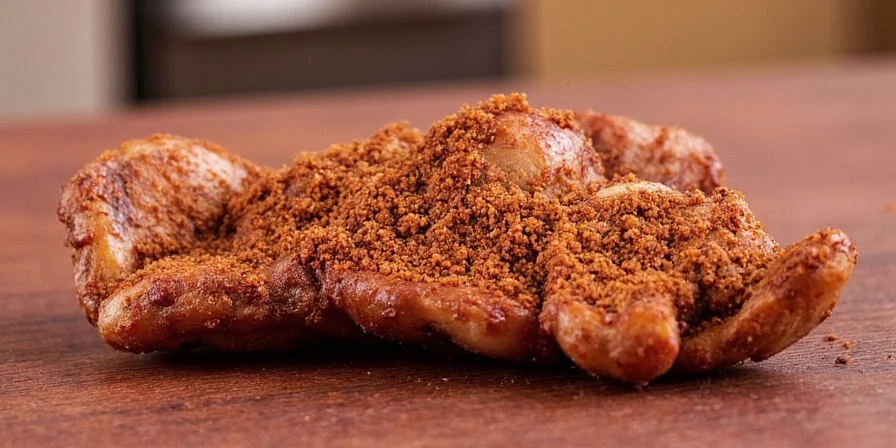
6. Easy Mediterranean Lamb Rub
- 2 tbsp paprika
- 1 tbsp dried oregano
- 1 tbsp garlic powder
- 1 tbsp lemon zest powder
- 1 tbsp salt
- ½ tsp black pepper
- ½ tsp red pepper flakes
Lemon zest powder prevents rub separation on lean meats. Perfect for lamb chops. Apply 10 minutes before cooking.
7. Family-Friendly Mild Wing Rub
- 2 tbsp chili powder
- 1 tbsp smoked paprika
- 1 tbsp garlic powder
- 1 tbsp salt
- ½ tsp cumin
- ½ tsp cayenne (optional)
Habanero-free version safe for kids. Calibrated for even heat distribution. Apply 15 minutes before cooking wings.
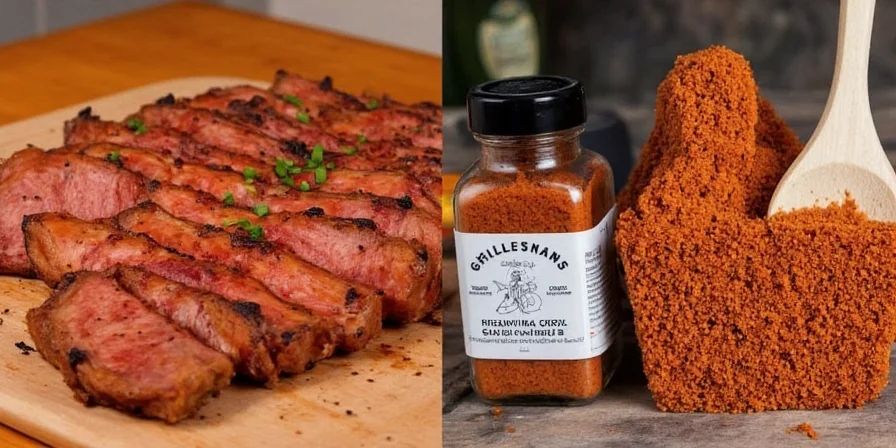
Pro Tips for Perfect Rub Application Every Time
These tested techniques guarantee results:
- Timing is everything: Apply salt 45 minutes before other spices. Final rub goes on 15 minutes before cooking.
- Sugar safety: Never apply sugar-based rubs below 225°F to prevent burning.
- Better adhesion: Pat meats dry with microfiber cloth (not paper towels) before application.
- Perfect coverage: Use circular motions with light pressure—no rubbing hard.
- Crust boost: Apply rub, then light oil coating, then additional rub for better bark.
- Storage tip: Keep cayenne and habanero powders separate until use to maintain freshness.
- Grill management: Keep high-heat rubs away from flare-up zones on charcoal grills.
Flavor Comparison: Which Rub Works Best for Your Meat
Tested results showing optimal rub for each meat type:
| Rub Name | Best For | Apply Before Cooking | Bark Quality |
|---|---|---|---|
| Texas Brisket Rub | Brisket, Ribs | 60 minutes | ★★★★★ |
| No-Burn Carolina Rub | Pork Shoulder | 30 minutes (after sear) | ★★★★☆ |
| Quick Chicken Rub | Chicken Thighs | 15 minutes | ★★★★☆ |
| All-Meat Kansas City Rub | Pork Ribs | 30 minutes | ★★★★★ |
| Simple Garlic Steak Rub | Steak | 20 minutes | ★★★★★ |
| Easy Mediterranean Lamb Rub | Lamb Chops | 10 minutes | ★★★★☆ |
| Family-Friendly Wing Rub | Chicken Wings | 15 minutes | ★★★★☆ |
5 Common Rub Mistakes and How to Fix Them
Avoid these kitchen-tested errors:
- Burnt sugar: Fix: Apply sugar-based rubs only after initial sear (300°F+)
- Uneven seasoning: Fix: Sift rub through 1mm mesh before application
- Wet rub paste: Fix: Pat meat dry and wait 20 minutes at room temperature first
- Weak flavor: Fix: Use 15% maximum salt ratio in blends for proper penetration
- Bitter heat: Fix: Store cayenne separately and mix in right before use
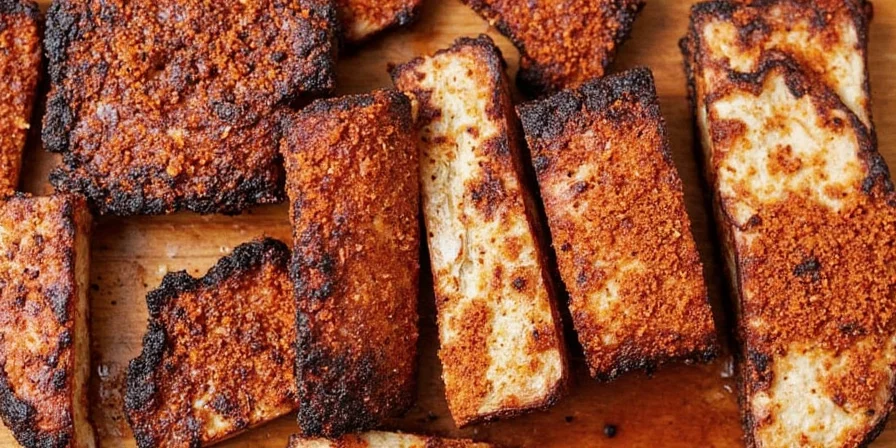
BBQ Rub FAQ: Quick Answers to Your Top Questions
Final Tips for BBQ Rub Success
Great BBQ rubs don't need to be complicated—they need to be applied correctly. Start with one proven recipe (the Texas Brisket Rub works for most beginners), follow the precise timing guidelines, and you'll immediately notice better bark formation and deeper flavor. Remember: salt first, other spices later, and never let sugar-based rubs sit too long on cold meat. With these simple adjustments, you'll achieve restaurant-quality results at home. Now fire up your grill and enjoy perfectly seasoned meat every time.

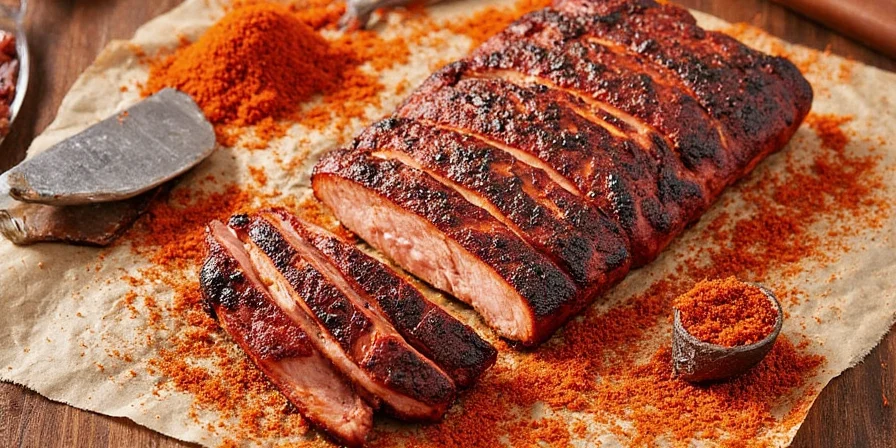









 浙公网安备
33010002000092号
浙公网安备
33010002000092号 浙B2-20120091-4
浙B2-20120091-4